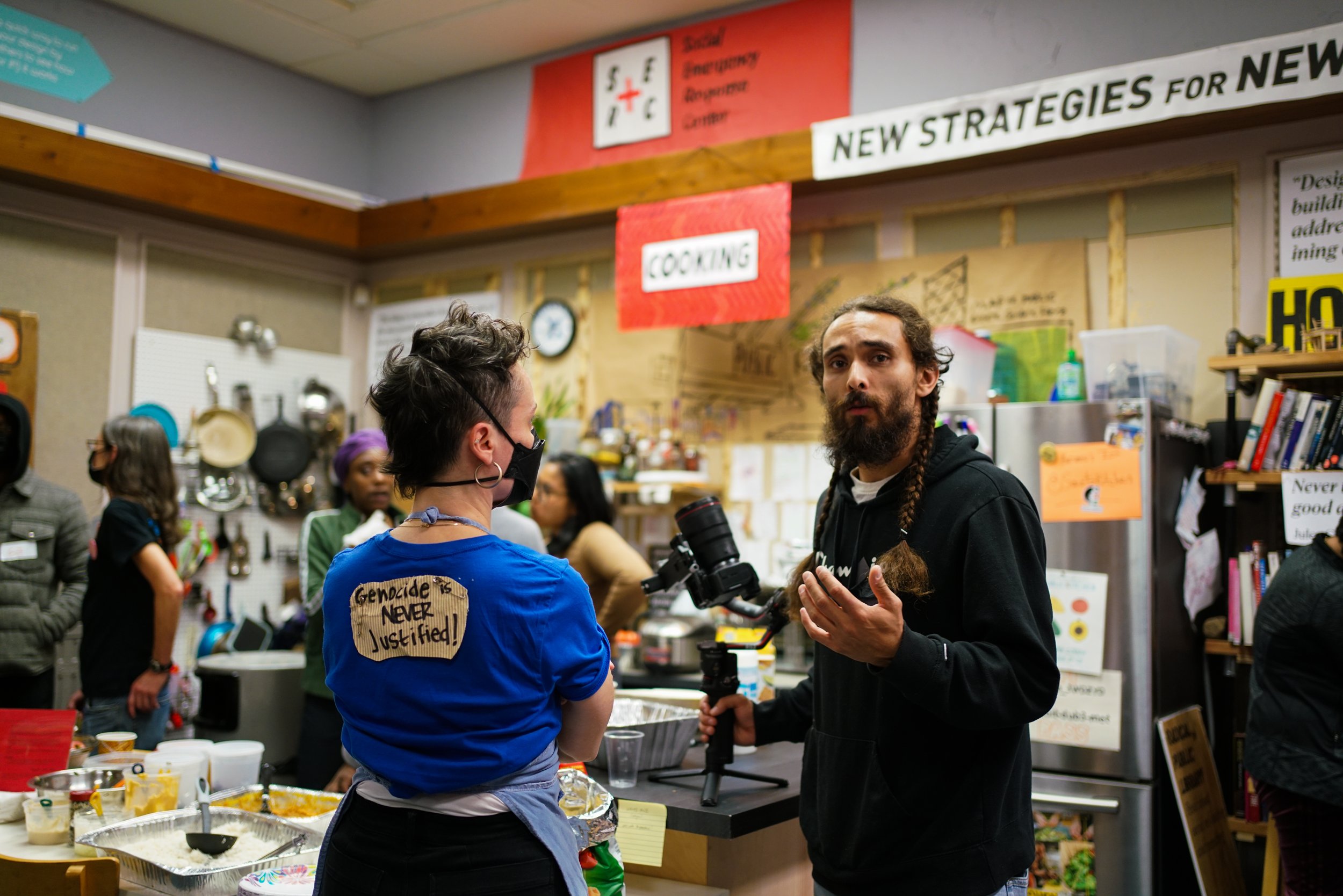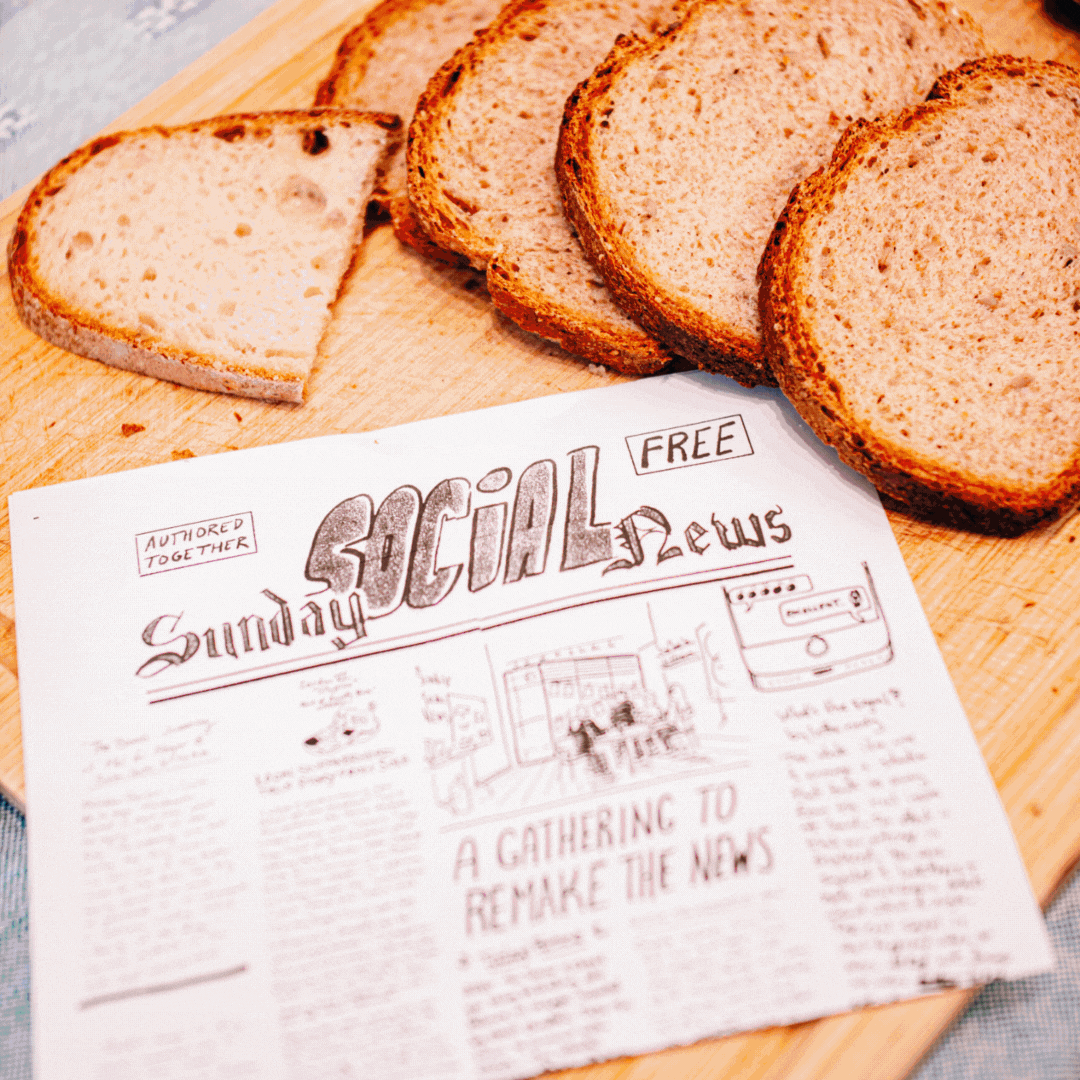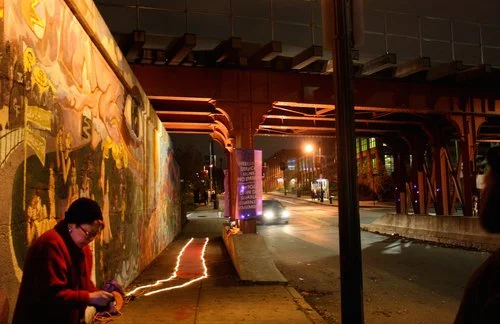
INTERVENTIONS
We design social interventions that engage populations in imagining and designing new solutions to social problems.
Sunday Social News
Sunday Social News explored what changes when we consume, critique, and even produce news together.
The People’s Late Night
We know that late-night talk shows organize our attention to celebrities. People’s Late Night is inspired by artist Claudio Padro's work in Brazil where he pulled furniture onto the street and interviewed people from all walks of life. We explore the question: what happens when we create a talkshow for everyone else?
Social Emergency Response Center
Social Emergency Response Centers help us understand the moment we’re in, from all different perspectives. They help us move from rage and despair into collective, radical action.
Big Urban Games
Can a big urban game shift the self-identity of a space or the people in it? Can the opportunity to play be as important in reducing social violence as the opportunity to work? What can games and spectacle teach folks doing on-going social justice work? Hopefully, a lot!
Let's Flip It
“Let’s Flip It” is a communication system developed by and for young people most affected by social violence in Boston. It is a way for them to say “it’s time to stop” without saying it directly.
Pretty Pretty Princess
Tired of the princess being held captive by racist, sexist, heterosexist and capitalist forces, we wanted to create an experience that challenged all the stereotypes of what and who a princess was.
Mobile Banner
“What would you do with $700 Billion?”—We created an interactive mobile banner to encourage spontaneous dialogue on the 2009 stock market crisis, engaging over 100 citizens across Boston.
Light up the Bridge
We created a Productive Fiction. Over two evenings in the fall of 2014, our installation of lights and an illuminated red carpet transformed the bridge into a bright space.
Black Citizenship Project
The Black Citizenship Project engaged artists to provide a public, artistic response to state-sanctioned violence against Black bodies and the Black community.
inPUBLIC Festival 2019
inPUBLIC is ds4si’s first festival of public-making—the collective creation and activation of public spaces for interaction and belonging. We are partnering with artists and activists to create the types of public spaces and atmospheres that we want to fight for.
inPUBLIC Festival 2021
inPUBLIC 2021 was a 3-day celebration, involving 60 artists in a radical act of tending to each other, as we transformed the Downtown Crossing Steps into an atmosphere of reflection and holding space to honor BIPOC artists and communities.















